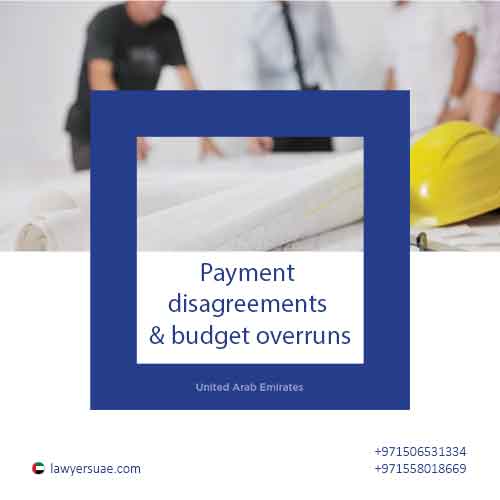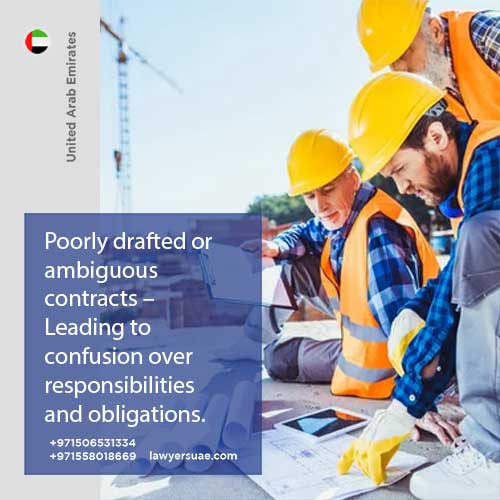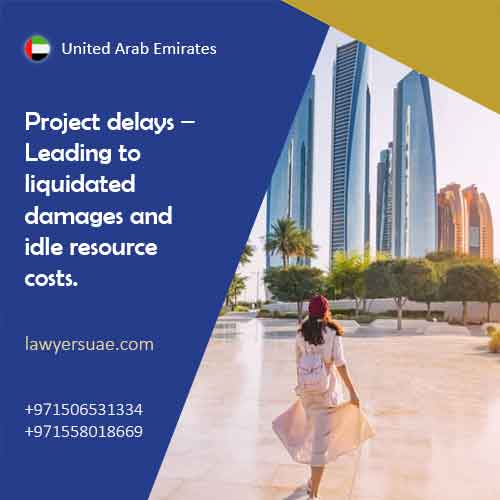Construction disputes are increasingly common in the modern building and infrastructure industry. With complex projects involving multiple parties and interests, disagreements and conflicts often arise. Unresolved disputes can spiral into costly legal battles or even derail projects altogether.
What Are Construction Disputes
Construction disputes refer to any disagreement or conflict that emerges between two or more parties involved in a construction project. They typically revolve around key issues like:
- Contract terms and obligations
- Payments
- Construction delays
- Quality and workmanship
- Design changes and defects
- Site conditions
- Changes in project scope
Disputes can occur between various stakeholders in a project, including:
- Owners
- Contractors
- Subcontractors
- Suppliers
- Architects and designers
- Engineers
- Construction managers
- Insurers
- Even governmental bodies
Common Causes of Construction Disputes
There are many potential triggers for disputes in construction projects:
- Poorly drafted or ambiguous contracts – Leading to confusion over responsibilities and obligations
- Unexpected changes to designs, plans or site conditions
- Errors and omissions in initial surveys or technical specifications
- Delays in material delivery, labor availability or adverse weather
- Defective construction or substandard quality of work
- Payment disagreements and budget overruns
- Failure to properly document changes to scope of work
- Communication breakdowns between involved parties
These and many other factors can quickly escalate into serious confrontations and claims between stakeholders.
Consequences of Unresolved Construction Disputes
Leaving conflicts unaddressed can have major financial, legal and schedule impacts:
- Project delays – Leading to liquidated damages and idle resource costs
- Increased overall project costs – From changes in scope of work, delays, legal fees etc.
- Damage to business relationships – Due to erosion of trust between parties
- Full-blown contractual disputes or even termination
- Litigation, arbitration and other legal proceedings
That is why it is critical to identify and resolve issues early through proper dispute resolution methods, even in cases involving a property developer in breach of contract.
Types of Construction Disputes
While each construction dispute is unique, most fall into some common categories:
1. Delay Claims
One of the most prevalent construction disputes involve project delays. Common examples include:
- Claims for extensions of time by contractors due to owner/client delays
- Acceleration claims to recover cost impacts of schedule changes
- Liquidated damages claims by owners against contractors for late completion
Tracking and documenting project delays is crucial in resolving such claims.
2. Payment Disputes
Disagreements over payment are also ubiquitous, such as:
- Under-valuation of completed works in progress claims by contractors
- Non-payments or late payments by clients and main contractors
- Backcharges and set-offs against subcontractors
Careful assessment of completed works and clear payment terms in contracts can mitigate payment issues.
3. Defective Works
Quality and workmanship disputes are common when construction is not per contract specifications:
- Remedial works to fix defects
- Backcharges against subcontractors
- Warranty and defect liability claims
Clear quality standards and robust quality inspection regimes are imperative to avoid disputes over defective works.
4. Change Orders and Variations
When project designs or specifications change mid-construction, it often leads to disputes, including:
- Pricing for varied or additional work
- Impacts of variations on project schedule
- Scope creep due to poor change control
Change order procedures and clear scope change plans in contract helps manage this major source of disputes.
5. Professional Negligence
Sometimes design deficiencies, errors or omissions spark disputes over:
- Rectification costs for defective designs
- Delays from rework
- Professional liability claims against designers
Robust quality assurance and peer reviews of designs minimizes negligence disputes.
Impacts of Construction Disputes
Without timely solutions, construction disputes can metastasize into much larger problems, including:
Financial Impacts
- Substantial unanticipated costs from delays, changes in work
- Major expenses related to dispute resolution
- Significant legal and expert fees
- Constraints in cash flows for projects
Schedule Impacts
- Project delays from work stoppages
- Delay claims and adjustments
- Re-sequencing and acceleration costs
Business Impacts
- Damage to business relationships and trust between parties
- Reputational risks for companies involved
- Constraints on future work opportunities
That makes fast dispute resolution indispensable.
Construction Dispute Resolution Methods
Dealing with the diverse nature of construction disputes demands tailored strategies, including:
1. Negotiation
Direct negotiation between parties facilitates fast, low-cost resolutions.
2. Mediation
An impartial mediator assists parties communicate to reach common ground.
3. Dispute Resolution Boards (DRBs)
Independent experts provide non-binding assessment of disputes, keeping projects moving.
4. Arbitration
Binding decisions on disputes are provided by an arbitrator or arbitration panel.
5. Litigation
As a last resort, court litigation can lead to legally enforceable judgments.
Arbitration and mediation are generally preferred over litigation due to lower costs and faster resolution.
Best Practices for Dispute Prevention
While disputes are expected in construction, prudent risk management and conflict avoidance strategies help minimize them:
- Clear, comprehensive contracts covering all project facets
- Open channels for prompt communication
- Early involvement of all parties in collaborative planning
- Thorough project documentation procedures
- Multi-tiered dispute resolution provisions in contracts
- An organizational culture oriented toward relationships
Construction Dispute Experts
Specialist legal consultants and subject matter experts often support resolution processes through vital services like:
- Contract drafting and risk allocation
- Clear contract administration procedures
- Claim preparation, evaluation and rebuttal
- Dispute avoidance system design
- Expert advice on resolution methods and forums
- Guidance on gathering technical evidence
- Forensic delay, quantum and subject matter analyses
- Mediation, arbitration and litigation support
Their niche expertise makes a big difference in avoiding or resolving construction disputes.
The Future of Construction Dispute Resolution
Cutting-edge innovations in digital technology promises to transform construction dispute management:
- Online dispute resolution platforms will enable faster, cheaper mediation, arbitration and even AI-assisted decision support.
- Blockchain-powered smart contracts can provide immutable project data required to resolve disputes.
- Digital twins of construction projects will help assess impacts of changes and delays holistically via simulations.
- Advanced data analytics will facilitate proactive risk management powered by project insights.
As pioneering technologies proliferate across the construction industry, they will provide invaluable tools for stemming disputes, while ensuring faster, cheaper resolution.
Conclusion – A Proactive Approach is Key
- Construction disputes are ubiquitous, given the sector’s complexity
- Unresolved disputes can severely impact budgets, schedules and stakeholder relations
- A spectrum of resolution methods from negotiation to litigation exists
- Robust prevention through risk management and contract best practices is most prudent
- Timely expert assistance can be invaluable whether avoiding or resolving disputes
- Harnessing emerging technologies promises optimised dispute management
With a proactive, collaborative approach anchored in dispute prevention, companies can help foster construction projects where on-time, on-budget delivery is the norm – not the exception impacted by distractions from conflict.
Call us now for an urgent appointment at +971506531334 +971558018669





